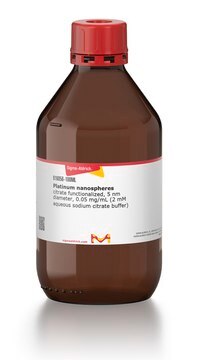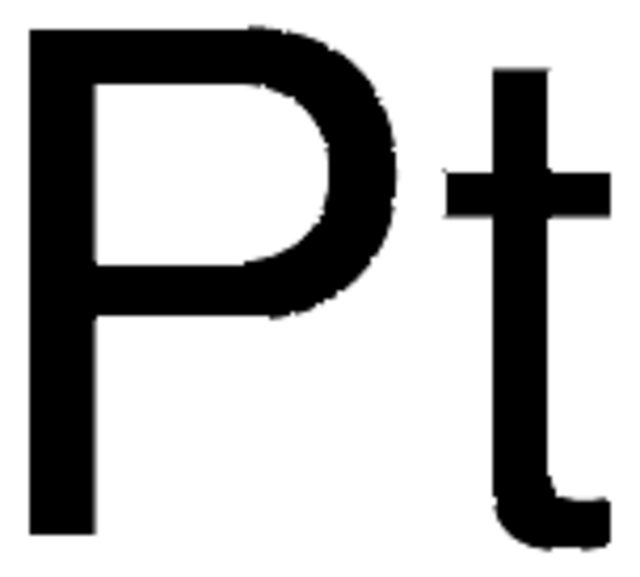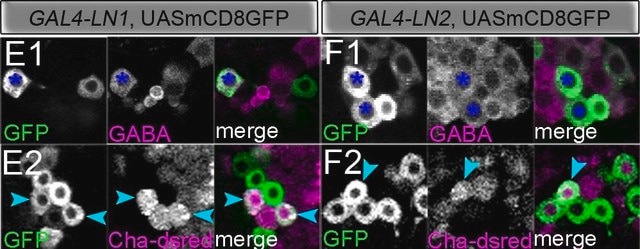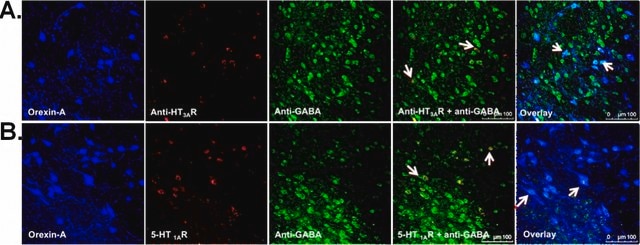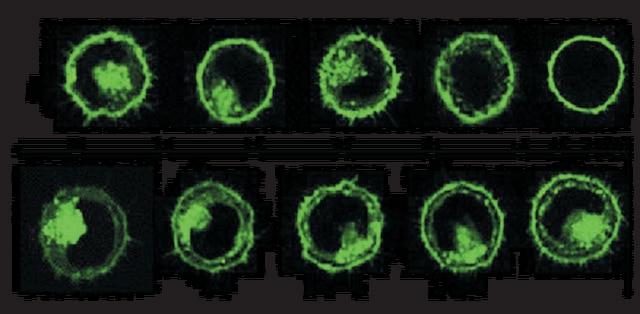AB5016
Anti-GABA (No Gluteraldehyde) Antibody
Chemicon®, from rabbit
Sign Into View Organizational & Contract Pricing
All Photos(1)
About This Item
UNSPSC Code:
12352203
eCl@ss:
32160702
NACRES:
NA.41
Recommended Products
biological source
rabbit
Quality Level
antibody form
purified immunoglobulin
antibody product type
primary antibodies
clone
polyclonal
species reactivity
rat
manufacturer/tradename
Chemicon®
technique(s)
immunohistochemistry: suitable
shipped in
wet ice
target post-translational modification
unmodified
Gene Information
rat ... Gabra1(29705)
Specificity
GABA (gamma-aminobutyrate). The antibody has been calibrated against a spectrum of antigens to assure hapten selectivity and proper affinity. No measurable glutaraldehyde-fixed tissue cross-reactivity (<1:1000) against L-alanine, 1-amino-4-guanidobutane (AGB), D/L-arganine, D/L-aspartate, L-citrulline, L-cysteine, D/L-glutamate, D/L-glutamine, glutathione, glycine, L-lysine, L-ornithine, L-serine, L-threonine, L-tryptophan, L-tyrosine.
Immunogen
GABA-glutaraldehyde
Application
Immunohistochemistry using silver-intensified immunogold or fluorescence (see recommended protocol). Samples should be fixed with 0.05% - 2.5% glutaraldehyde for optimum detection.
*This antibody has also been used and found to work with a zero-low glutaraldehyde / high paraformaldehyde fixation (4% paraformaldehyde in 0.1M phosphate buffer / 3% sucrose fixative ). The minimum glutaraldehyde concentration for AB5016 is 0.00%. See protocol that follows. Performance is good with frozen sections, Vibratome sections and tissue culture formats, when penetrating reagents such as 0.3% Triton X-100 are used.
Optimal working dilutions must be determined by the end user.
DILUTION: Prepare enough of the AB5016 for your days use by diluting 100X with 1% GSPBT.
*This antibody has also been used and found to work with a zero-low glutaraldehyde / high paraformaldehyde fixation (4% paraformaldehyde in 0.1M phosphate buffer / 3% sucrose fixative ). The minimum glutaraldehyde concentration for AB5016 is 0.00%. See protocol that follows. Performance is good with frozen sections, Vibratome sections and tissue culture formats, when penetrating reagents such as 0.3% Triton X-100 are used.
Optimal working dilutions must be determined by the end user.
DILUTION: Prepare enough of the AB5016 for your days use by diluting 100X with 1% GSPBT.
Research Category
Neuroscience
Neuroscience
Research Sub Category
Neurotransmitters & Receptors
Neurotransmitters & Receptors
This Anti-GABA (No Gluteraldehyde) Antibody is validated for use in IH for the detection of GABA (No Gluteraldehyde).
Physical form
Format: Purified
IgG fraction in sterile 0.1M phosphate buffer. No preservative
Storage and Stability
Maintain stock at 2-8°C in undiluted aliquots for up to 6 months. This stock is extremely stable under normal use and routine storage at 2-8°C. Do not freeze this stock.
Legal Information
CHEMICON is a registered trademark of Merck KGaA, Darmstadt, Germany
Disclaimer
Unless otherwise stated in our catalog or other company documentation accompanying the product(s), our products are intended for research use only and are not to be used for any other purpose, which includes but is not limited to, unauthorized commercial uses, in vitro diagnostic uses, ex vivo or in vivo therapeutic uses or any type of consumption or application to humans or animals.
Not finding the right product?
Try our Product Selector Tool.
Certificates of Analysis (COA)
Search for Certificates of Analysis (COA) by entering the products Lot/Batch Number. Lot and Batch Numbers can be found on a product’s label following the words ‘Lot’ or ‘Batch’.
Already Own This Product?
Find documentation for the products that you have recently purchased in the Document Library.
Matthias Braun et al.
The Journal of general physiology, 123(3), 191-204 (2004-02-11)
We have explored whether gamma-aminobutyric acid (GABA) is released by regulated exocytosis of GABA-containing synaptic-like microvesicles (SLMVs) in insulin-releasing rat pancreatic beta-cells. To this end, beta-cells were engineered to express GABA(A)-receptor Cl(-)-channels at high density using adenoviral infection. Electron microscopy
Christophe Anjard et al.
Development (Cambridge, England), 136(5), 803-812 (2009-01-30)
Encapsulation of prespore cells of Dictyostelium discoideum is controlled by several intercellular signals to ensure appropriate timing during fruiting body formation. Acyl-CoA-binding protein, AcbA, is secreted by prespore cells and processed by the prestalk protease TagC to form the 34
Haijie Yu et al.
Journal of pineal research, 61(1), 69-81 (2016-03-29)
Pinealocytes secrete melatonin at night in response to norepinephrine released from sympathetic nerve terminals in the pineal gland. The gland also contains many other neurotransmitters whose cellular disposition, activity, and relevance to pineal function are not understood. Here, we clarify
Neurotransmitter synthesis in poststroke cortical neurogenesis in adult rats.
Gu, W; Gu, C; Jiang, W; Wester, P
Stem Cell Research null
Age-dependent disease expression determines remodeling of the retinal mosaic in carriers of RPGR exon ORF15 mutations.
Beltran, WA; Acland, GM; Aguirre, GD
Investigative Ophthalmology & Visual Science null
Our team of scientists has experience in all areas of research including Life Science, Material Science, Chemical Synthesis, Chromatography, Analytical and many others.
Contact Technical Service